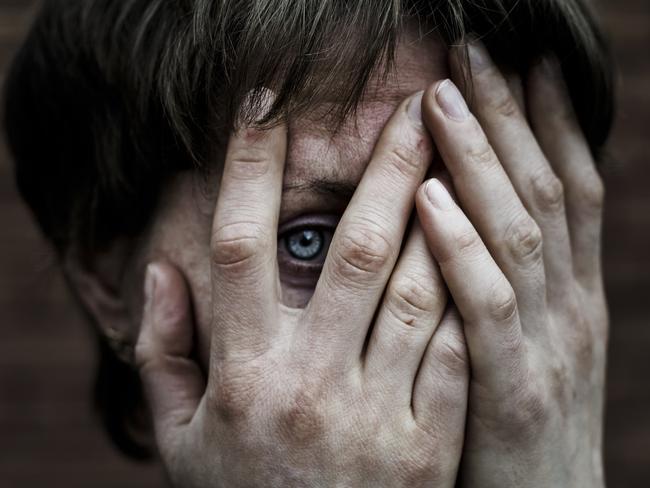Older Australians had suicidal thoughts and depression in controversial prevention trial
SOME vulnerable older Australians — without depression — suffered suicidal thoughts in a controversial clinical trial.

Mind
Don't miss out on the headlines from Mind. Followed categories will be added to My News.
SOME vulnerable older Australians — without depression — suffered suicidal thoughts in a controversial clinical trial that saw them fed antidepressants and fish oil.
A News Corp investigation can now reveal that 75,000 elderly residents in seven Sydney electorates are currently receiving mail inviting them to take part in the next phase of the study.
The trial, run by University of Sydney psychiatrist Professor Ian Hickie, was to test 450 Australians to see whether antidepressants or fish oil could prevent depression and dementia.
Five of the 185 participants (2.7 per cent) have had to withdraw from the trial because they developed depression and 10 revealed they suffered thoughts of suicide or self harm.

The Beyond Ageing Project attracted controversy in 2011 when five academics approached Sydney University with concerns about the use of the antidepressant sertraline in the trial.
Sertraline has a higher rate of adverse reactions than other depression medicines, including suicidality, dizziness (a factor in falls) and inability to keep still, it can also reduce the effectiveness of breast cancer drug tamoxifen, they warned.
The academics said they had concerns participants were being given antidepressants when 90 per cent would never develop depression but two independent inquiries cleared the trial allowing it to go ahead.

Professor Hickie told News Corp five participants had already withdrawn from the trial because they went on to develop depression and needed treatment.
Another 36 people (27 per cent) withdrew from the trial at some point including 15 who suffered gastrointestinal problems (a common side-effect of sertraline and, to a lesser extent, fish oils).
Around 9 to 18 per cent of the general older population suffers from clinical depression.
“My conclusion is that from the data currently available, development of a severe depressive episode or other mental health difficulty requiring commencement of active treatment external to the trial is a rare event (n=5/185; 3% of subjects to date),” he said.
“Given that subjects are recruited with active depressive symptoms, the overall rate is somewhat lower than we would predict from observational (non-interventional) studies — that is, it is likely that participation in the trial is having an overall benefit,” he said.

At this stage the researchers have no idea whether any of the specific treatments is responsible because they don’t know who is taking which treatment.
The participants who had suicidal thoughts were spread 4/4/2 across the treatment arms of the trial, those who had depression were spread 2/2/1 across treatment arms.
The study was subjected to two independent reviews after other academics raised ethical and methodological concerns but “twice it was found to be justified,” Hickie said.
Depression in the elderly is associated with higher rates of morbidity, disability, functional decline and possibly dementia.
Professor Ian Hickie hopes it may be possible to prevent depression and dementia in the same way lifestyle changes and medications prevent and control heart disease and cancer.
The study is based on the premise depression is not just a psychological issue but is connected to physical changes in the brain.
A 2015 study by University of Sydney’s Sharon L. Naismith found people with psychiatric diseases had smaller hippocampal volumes when scanned.

The hippocampus is the region of the brain thought to control emotion, memory, and the autonomic nervous system.
Researchers working with Professor Hickie have already trialled the use of folate, diet, exercise, online cognitive behavioural therapy and sleep disturbance as ways of preventing depression.
“Bottom line we’ve seen either small effects or negligible effects,” he says.
The next phase of the trial is to see whether fish oil or antidepressants can prevent depression or cognitive decline.
Other studies using fish oil to treat psychosis found it did not confer a benefit and sertraline was found not to be useful in treating fatigue and depression in cancer patients, he said.
Finding that certain treatments did not work was scientifically important in the same ways as finding those that did work, Professor Hickie says.
“I’ve been associated with more negative trials than positive trials,” he said.
Participants in the study have to undergo an assessment of their memory, thinking and mental state, have a brain scan and wear a device that measures sleep patterns.
Please call Lifeline on 13 11 14 if you need help with suicidal thoughts.



